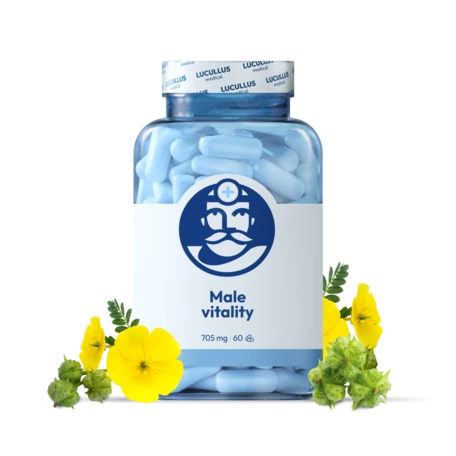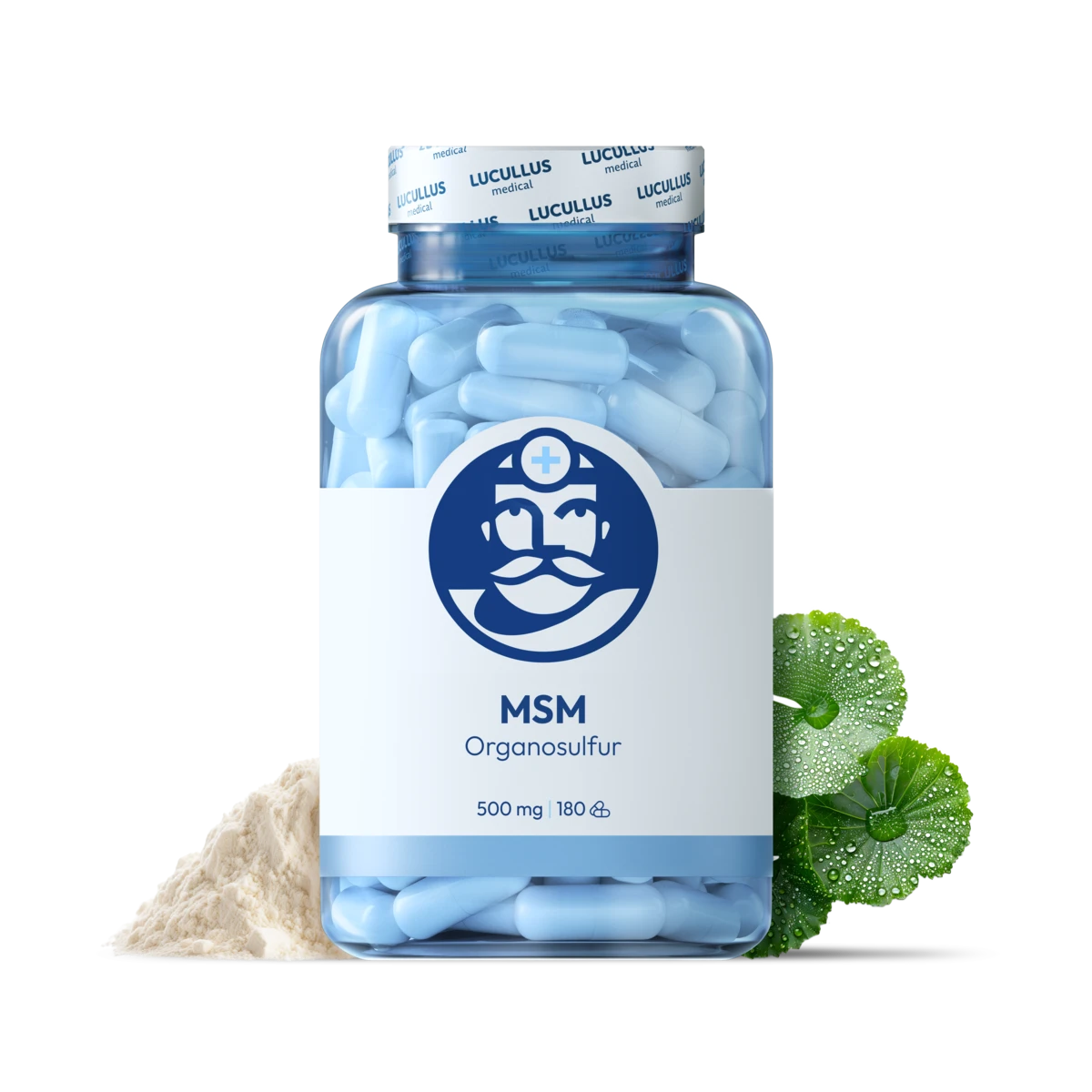
MSM (Organosulfur) .... multifunkčný doplnok
Vedeli ste, že síra je pre naše telo rovnako nevyhnutná, ako vitamíny či minerály? Jedným z jej najvýznamnejších zdrojov je látka nazývaná metylsulfonylmetán, skrátene MSM. Napriek tomu, že názov znie, ako z učebnice chémie, ide o prirodzenú látku tak zásadným významom pre správne fungovanie organizmu. MSM sa prirodzene vyskytuje v krvi, tkanivách a orgánoch, kde podporuje látky, ako sú aminokyseliny - glutatión, cysteín a metionín. Táto organická zlúčenina síry, známa aj ako organosulfur je mimoriadne účinná v boji proti oxidačnému stresu, zápalom a pri regenerácii tela. Jej zdrojom môžu byť prírodné potraviny. Organosírne zlúčeniny, ako napríklad aličín v cesnaku, majú široké zdravotné využitie, a MSM je jedinečný v tom, že ponúka komplexnú podporu od zdravia kĺbov až po posilnenie imunity .

Ashwagandha - krotiteľ kortizolu
Určite poznáte pocit, keď sa cítite v ohrození. Vybehol na vás spoza plota veľký pes, na porade sa na vás oboril šéf a zniesol vás pod zem, alebo je zajtra splátka hypotéky a vy ste práve dostali padáka z práce. V takýchto prípadoch telo produkuje steroidný hormón - kortizol. Ten nás už chráni v nebezpečných situáciách a telo pripravuje pozície "bojuj, alebo uteč". Srdce sa rozpumpuje, krv sa nahrnie do dôležitých orgánov, hladina bolesti potláča... Poviete si - najužitočnejšia vec pod slnkom!

Omega 3 chránia váš kardiovaskulárny systém
V starom filme je scéna, kde babka alebo dedko nútia každé ráno malé deti vypiť lyžičku rybieho oleja. Deti to nenávidia, chutí to odporne. „Ale budeš zdravý!“- znie veta starostlivých starkých. Odkiaľ sa toto vzalo? , platí dodnes, akurát veda dokázala zázračný rybí tuk premeniť na "obyčajné" tablety, alebo extrakty s normálnou nie sú chuťou.

Ženská rovnováha dôležitá pre každú ženu
Asi sa zhodneme na tom, že ženské telo a jeho hormonálna rovnováha, je komplikovanejšie, ako telo mužské. Na ženu totiž okrem iného výrazne vplýva aj jej mesačný ženský cyklus. Je preto oveľa dôležitejšie sledovať všetky potrebné látky a hormóny, ak chce žena žiť vyrovnaný, spokojný život či už po stránke zdravotnej, alebo tej psychickej.

B9 with a huge impact
If you were to test your diet today, you might find that despite healthy eating, you lack enough vitamin B9 - folic acid. Popular avocado toasts are in vogue, but unlike spinach, lentils, or broccoli, they don't contain much B9. Folic acid was first isolated from spinach, and although it is most commonly associated with pregnancy, its importance concerns each of us.

Vitamín B3 Niacínamid
Vitamín B3 - niacín, možno aj starší poznajú aj pod názvom P. Patrí do skupiny vitamínov B, ktoré nájdeme v multiformnom B-komplexe. Je to veľmi dôležitá skupina, ktorú potrebujete pre správnu funkciu zraku, slizníc, kože, srdca... V prípade potreby potrebujete pre správne fungovanie srdcovej, svalovej a nervovej činnosti.




























